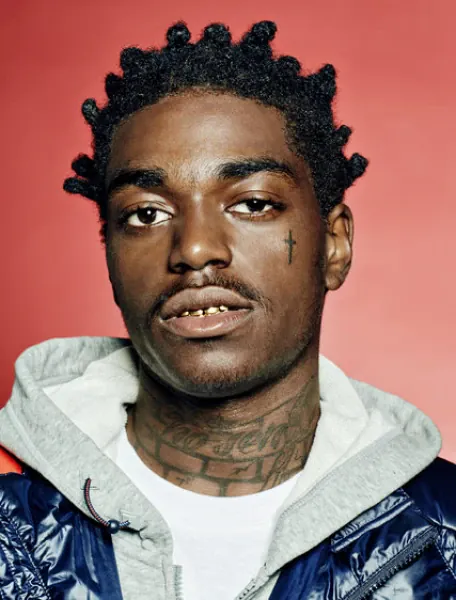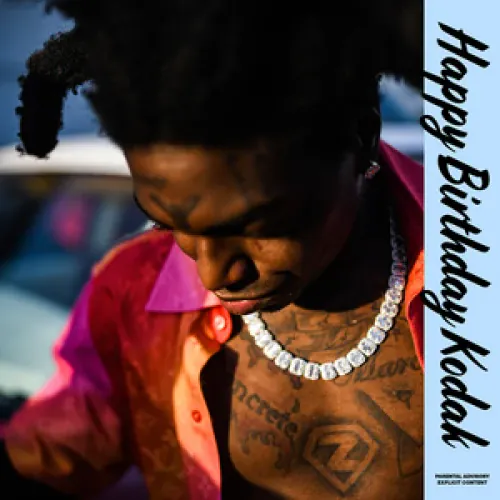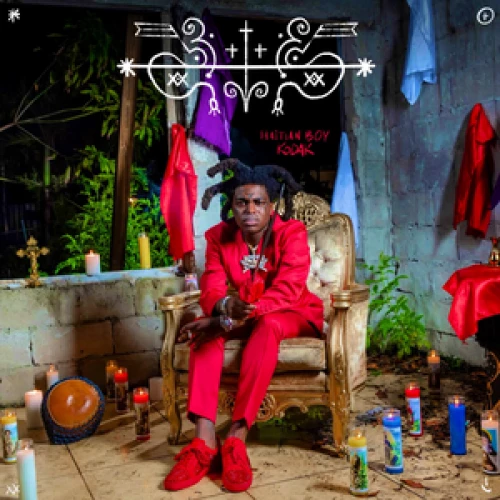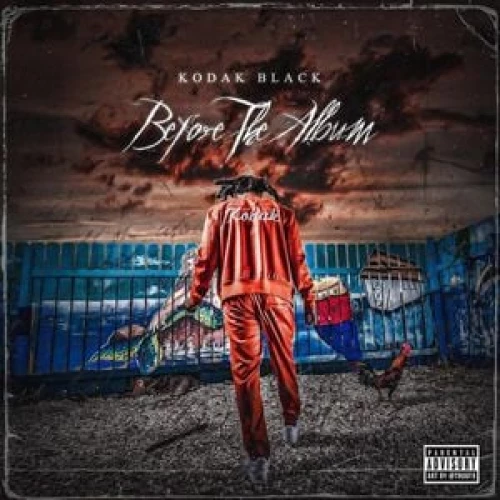
Kodak Black
Top Kodak Black albums
Top Kodak Black lyrics
Kodak Black biography
Dieuson Octave (born June 11, 1997), better known by his stage name Kodak Black, is an American hip hop recording artist. Early life and career Octave was born on June 11, 1997 in Pompano Beach, Florida, where he was also raised. His parents were immigrants from Haiti. Octave was raised by his mother in Golden Acres, a public housing project in Pompano Beach.[6] From the age of six, Octave used the nickname "Black". He also used the nickname "Lil' Black". When he signed up for Instagram he chose the username "Kodak Black". This was the stage name he used when he began rapping, and a stage name favored by his fans.[5][6] In 2009, at age 12, Kodak Black joined a rap group called "Brutal Yungenz", under his first official stage name "J-Black".[1] He then joined a local rap group called "The Kolyons".[6][7] In December 2013, Kodak Black released the mixtape Project Baby,[8] followed in December 2014 with the mixtape "Heart of the Projects",[9] and in December 2015 with the mixtape Institution.[10] In October 2015, Canadian rapper Drake posted a video of himself dancing to one of Kodak Black's singles "Skrt", which helped Kodak Black gain popularity.[11][12] That same month, Kodak Black signed a deal with Atlantic Records.[4] In May 2016, Kodak Black and rapper and label-mate Lil Uzi Vert announced their intention to partner for a national tour called the "Parental Advisory Tour", however, Kodak Black did not appear on the tour. [13] In May 2016, Kodak Black was featured on French Montana's single "Lockjaw", from French Montana's twenty first mixtape MC4, which reached a peak position of 23 on Billboard's Hot R&B/Hip-Hop Songs chart.[14] In August 2016, Kodak Black's single Skrt reached number 10 on Billboard's "Bubbling Under R&B/Hip-Hop Singles" chart.[15] In June 2016, he released his fourth mixtape, Lil B.I.G. Pac, which became his first mixtape to chart on Billboard, reaching number 49 on the "Top R&B/Hip-Hop Albums" chart and number 18 on the Heatseakers Albums chart.[16] In June 2016, Kodak Black was named one of XXL Magazine's "2016 Freshman Cla**".[17] In August 2016, Kodak Black was criticized when a studio session video was released showing him ridiculing dark-skinned black women with lyrics which implied those women were less attractive than light-skinned black women.[18][19] While in jail in 2016, he released the song "Can I".[20] Legal issues Arrest photo, May 2016 Kodak Black was placed into a youth detention center three times in one year, and then placed on probation.[7] In October 2015, Kodak Black was arrested in Pompano Beach and charged with robbery, battery, false imprisonment of a child, and possession of cannabis. He was later released.[2] In April 2016, Kodak Black was arrested in Hallandale Beach, Florida and charged with possession of a weapon by a convicted felon, possession of cannabis, and fleeing from officers.[21] The following month, Kodak Black was arrested in Broward County, Florida and charged with armed robbery and false imprisonment. He was detained in custody.[22][23] In August 2016, Kodak Black appeared in court in Fort Lauderdale, Florida. Several executives from Atlantic Records attended the court; vice-president Michael Kushner commenting "Black has a bright future as a recording artist".[24] Kodak Black pleaded no contest to all charges and under a plea agreement was to be placed on house arrest for one year, have five years probation, perform community service as required, and take anger management cla**es. He would also be permitted to tour internationally.[25][26] Prior to his release from Broward Main Jail, police discovered two outstanding criminal warrants, the first from Florence, South Carolina alleging felony criminal s**ual conduct, the second from St. Lucie County, Florida alleging two counts of misdemeanor cannabis possession. Kodak Black was not released from jail.[24] In September 2016, Kodak Black pleaded no contest to two misdemeanor drug charges and was sentenced to four months in jail. He was credited for time spent in custody awaiting trial and was required to serve 120 days. He was also suspended from driving for one year.[27] Kodak Black was released from jail in Florida, and was then transported to Florence, South Carolina to face charges of s**ual a**ault. According to the female victim, who reported the incident to her school nurse, she had attended a February 2016 performance by Kodak Black at "Treasure City" in Florence, after which she accompanied the singer to his hotel room where he is alleged to have told her he "couldn't help himself" as he tore off her clothes, bit her repeatedly, and raped her as she screamed for help. Kodak Black was released from custody in South Carolina on December 1, 2016 after posting $100,000 bond, and must return to court on February 8, 2017.[28] Within hours of release Kodak Black recorded There He Go,[29] which mentions his recent release from jail: Just hopped off the plane I just got out about a day ago Everybody love me, when they see me they be like, "There he go!" Got me a new lady, we 'bout to take a trip to Mexico Crackers took my 40 so I'm 'bout to go buy a Draco (an AK-47 handgun)[30] Musical style Kodak Black's music is frequently about "previous and future criminal misdeeds", and he stated that he's been influenced by rappers Boosie Badazz and Chief Keef.[6] The New Yorker described his "manifestly youthful voice" and "mutinous sound", and stated "Octave joins other young rappers who have rejected an old-school emphasis on lyrical variety, individualism, and personal catharsis".[31] In 2016, The Fader wrote that Kodak Black "articulates the constant state of affliction that living in a poverty-stricken environment can mean. He makes emotionally intelligent observations in a manner reminiscent of teenage artists of the ‘90s, such as Mobb Deep and Lil’ Wayne, whose voices were valued as genuine illustrations of life in their corners of America".



